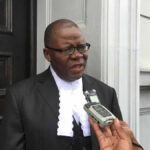President Mnangagwa is to Egypt today to join over 3 000 delegates who include Heads of State and Government, central bank governors and members of the development community, at the 58th annual meetings of the Board of Governors of the African Development Bank, and the 49th meetings of the Board of Governors of the African Development Fund.
Against the backdrop of surging climate disasters across the continent and sluggish climate finance from developed countries, African leaders are gathering in Egypt with a renewed urgency to grow private investments for green growth.
The annual meetings of the African Development Bank (AfDB) kicked off today in Sharm El-Sheikh, with over 3,000 delegates in attendance including heads of state, central bankers and development specialists. The summit’s theme, “Mobilizing private sector financing for climate and green growth in Africa”, underscores the challenge of raising the billions required to shift African economies onto a low-carbon, climate-resilient path.
The AfDB estimates Africa needs between $1.3 to $1.6 trillion by 2030 to implement its national climate action plans. Yet funding from Western governments and multilateral institutions has fallen far short. Leaders will hold discussions on how to tap African natural capital and harness innovative instruments to attract private climate investments.
The summit provides an opportunity for African nations like Zimbabwe to sort out debt issues and persuading creditors of their green growth strategies. With Africa’s economy projected to grow by 4% in the next two years, leaders hope to leverage this momentum to pursue inclusive development that lifts millions out of poverty.
However, continent-wide action on climate change remains constrained by lack of financing. While wealthy nations promised climate funds at COP27, the size and design of those pledges remain unclear. As African leaders gather in Egypt, the search for homegrown green solutions funded by the private sector has taken on a new urgency. With surging climate impacts like recent floods in Malawi, DRC and elsewhere, Africa can ill afford to wait.












